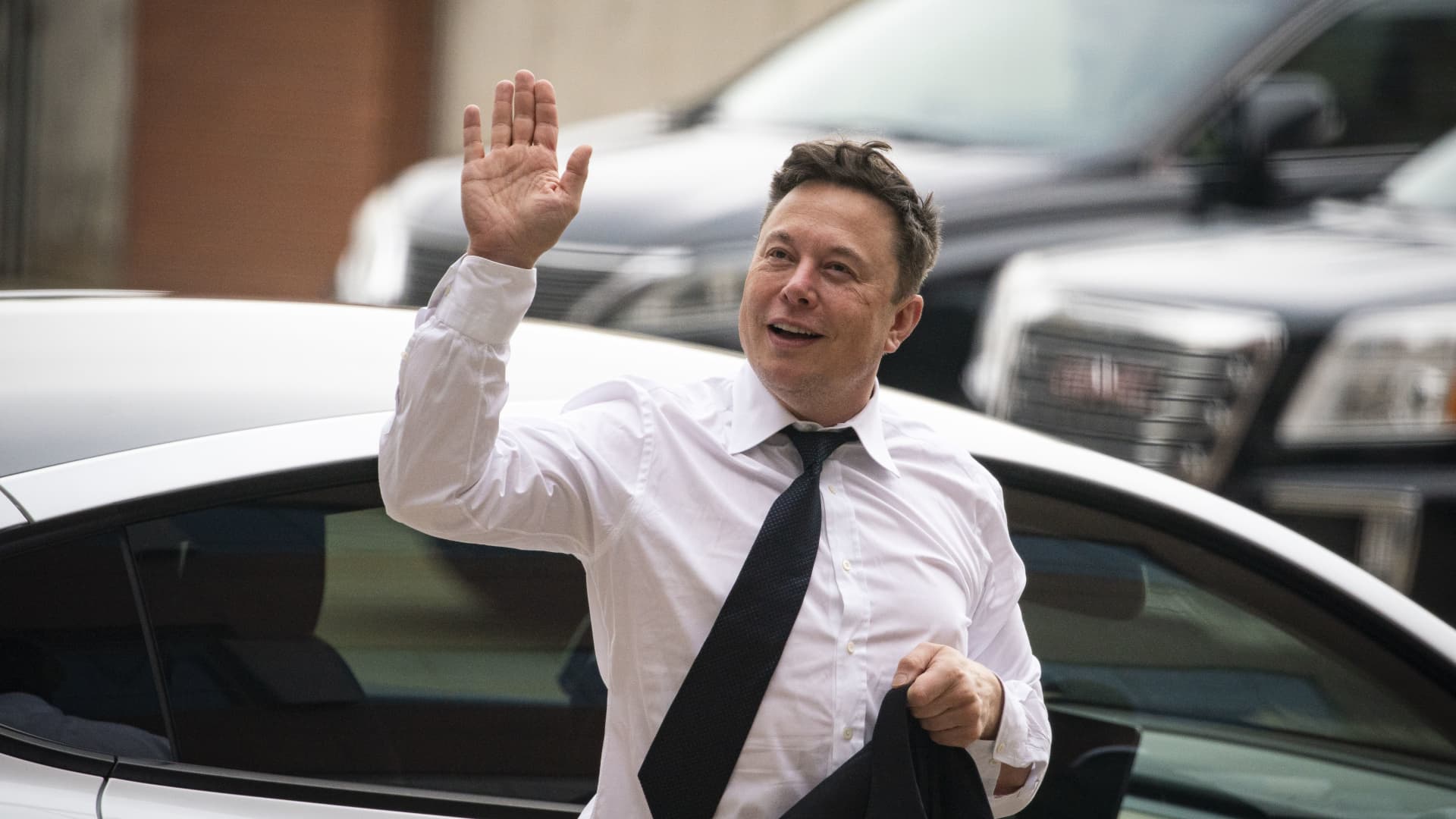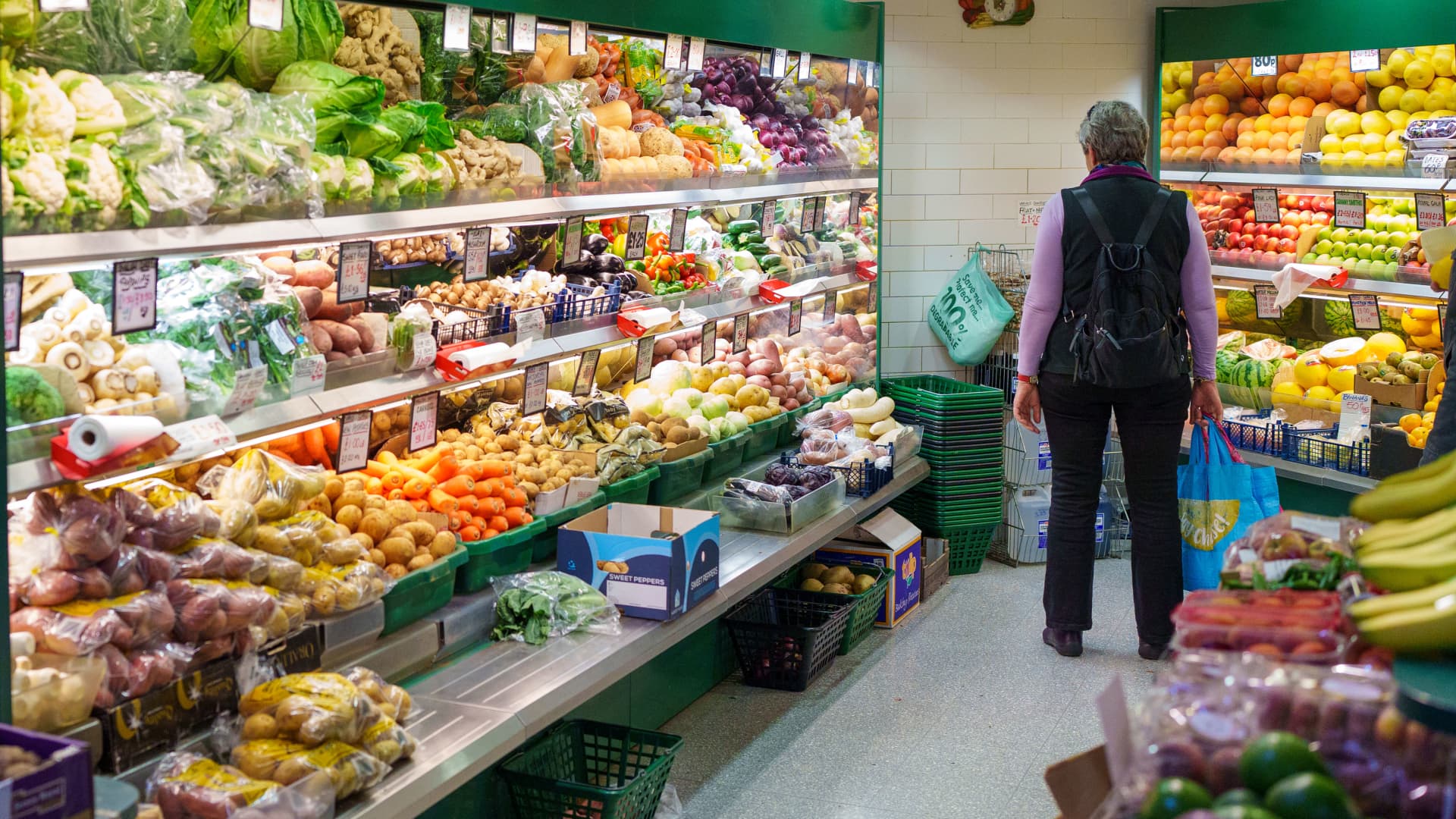
Elon Musk, chief executive officer of Tesla Inc., arrives at court during the SolarCity trial in Wilmington, Delaware, U.S., on Tuesday, July 13, 2021.
Al Drago | Bloomberg | Getty Images
A Delaware court ruled in favor of defendant Elon Musk on Wednesday in a shareholder lawsuit over Tesla’s $2.6 billion acquisition of SolarCity.
Tesla shareholders alleged the company’s acquisition of the solar installer amounted to a bailout, pushed through by Musk who sat on both company boards at the time. The shareholders also alleged that Musk controlled the board of Tesla, even though he appeared to recuse himself from some deal negotiations concerning SolarCity.
Had he lost, Musk could have had to pay upwards of $2 billion. The matter could be appealed to the Delaware Supreme Court.
Vice Chancellor Joseph R. Slights, who decided the case shortly before retiring, sided with Elon Musk, writing: “Elon was more involved in the process than a conflicted fiduciary should be. And conflicts among other Tesla Board members were not completely neutralized. With that said, the Tesla Board meaningfully vetted the Acquisition, and Elon did not stand in its way.”
Musk denied that he placed any pressure on the Tesla board to go through with the transaction. He also said the merger allowed Tesla to combine its battery business with Solar City’s solar photovoltaics installations.
During the trial, Musk said the SolarCity deal was part of his “master plan,” which he had written in 2006 and was meant to accelerate the advent of sustainable energy.
The case was a shareholder derivative action, a suit filed by investors on behalf of a corporation, rather than individuals or funds. If the plaintiffs had won, proceeds would have gone to Tesla and not to the stakeholders who brought the suit.
Investors were skeptical of the deal when Tesla proposed it in June 2016, with the stock plunging more than 10% on the announcement.
During his testimony, Musk repeatedly argued that Solar City would have been able to raise capital even if it hadn’t been acquired by Tesla.
The plaintiffs argued that Musk was only able to get the SolarCity acquisition approved by misrepresenting the financial well-being of SolarCity, saying it should be cash-flow positive within six months. The plaintiffs argued other financial experts agreed with that assessment. They also alleged that due diligence by outside firms including Evercore was rushed to hide SolarCity’s troubles.
Shareholders also argued, in the suit, that Musk unveiled a product that didn’t yet function — glass solar roof tiles — to convince investors that there was real intellectual property and a product close to commercial viability in SolarCity.
Slights also acknowledged: “As of trial, Tesla continued to rely on other solar companies to manufacture, produce, install and sell parts of its solar products. In other words, the synergistic integration that Tesla hoped for is still a work in progress. Despite these challenges, Tesla’s value has massively increased following the Acquisition.”




